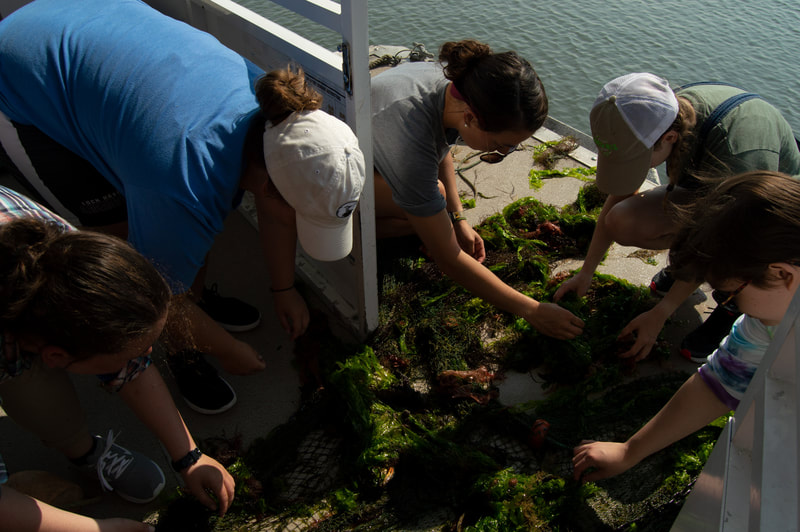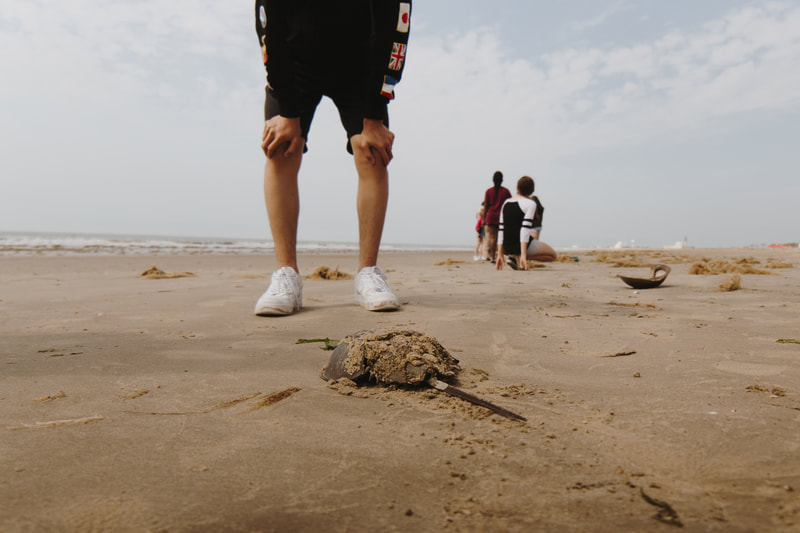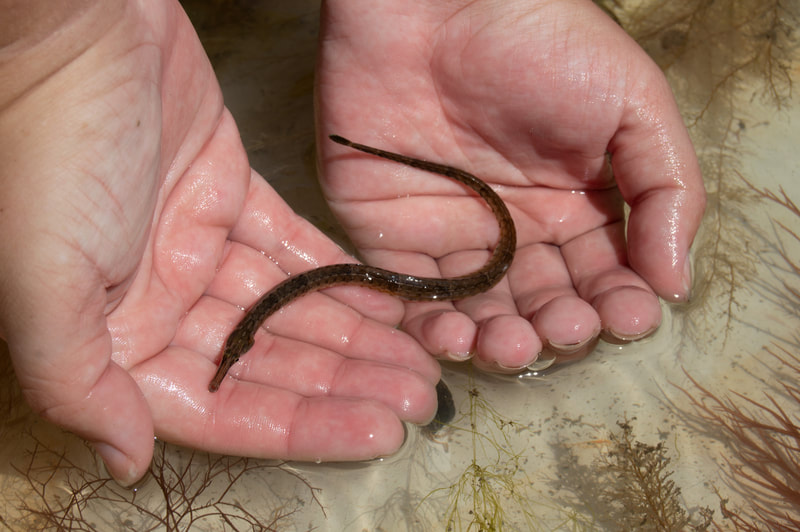MARINE BIOLOGY - Summer 2023
Dr. Clay Corbin - BLOOMSBURG UNIVERSITY
Course Description:
A study of plant and animal life in the marine environment. Emphasis on physical and chemical environmental factors affecting the biota in the intertidal, open water and benthic habitats. Common biota characteristics of each habitat will be investigated in terms of their natural history, morphology and ecological relationships.
Course Goals and Objectives:
Welcome to Marine Biology. This is a field-based course where we will study and describe the natural history of marine and coastal systems (estuaries, saltmarshes, seagrass beds, tidal creeks, bays, coves, barrier islands, beaches, intertidal zones, taxonomy of vertebrates and invertebrates of these systems). Everyone should expect to work together and, with everyone bringing different past experiences and skills, respect what each has to offer the group.
Marketable Skills Gained from This Course:
General Description of Field Activities:
Prerequisites:
One year of Biology or consent of instructor.
NOTE: This course is intended to meet requirements for various science majors, including secondary education. All non-science majors should contact the instructor to determine the suitability of this course for their programs!
Required Textbook or Supplies:
Suggested:
Text: Castro P and Huber ME. 2019. Marine Biology (11/e). McGraw Hill. New York.
Various Field guides: Atlantic fish, invertebrates, plants, birds, etc.
Binoculars – 8x35 are good.
REQUIRED:
Field Notebook: Required, but most any will do. Some suggestions: “waterproof” (Write in the Rain) paper and pen, ringed binder (3-ring possibly). Something smaller is appropriate for the field.
Number of Students:
6-14
2023 Chincoteague Bay Field Station Fee*:
3 week course; housing and meals included
Salicornia; $1,692
Traditional; $1,542
Fees are subject to change at the discretion of the board of directors
* Does not include university tuition or fees. For specific policy on CBFS fees, click HERE.
Below is an course description made by the professor.
A study of plant and animal life in the marine environment. Emphasis on physical and chemical environmental factors affecting the biota in the intertidal, open water and benthic habitats. Common biota characteristics of each habitat will be investigated in terms of their natural history, morphology and ecological relationships.
Course Goals and Objectives:
Welcome to Marine Biology. This is a field-based course where we will study and describe the natural history of marine and coastal systems (estuaries, saltmarshes, seagrass beds, tidal creeks, bays, coves, barrier islands, beaches, intertidal zones, taxonomy of vertebrates and invertebrates of these systems). Everyone should expect to work together and, with everyone bringing different past experiences and skills, respect what each has to offer the group.
Marketable Skills Gained from This Course:
- Proficiency in field-based research skills for coastal and estuarine ecosystems including trawling, seining, plankton tows, water chemistry analysis, and sediment analysis.
- Ability to identify common organisms found in the mid-Atlantic region.
General Description of Field Activities:
- Shore-based and vessel-based organism collection and identification.
- Evaluation and quantification of components of the abiotic environment.
- Conduct field-based experiments on organisms in their natural habitat.
Prerequisites:
One year of Biology or consent of instructor.
NOTE: This course is intended to meet requirements for various science majors, including secondary education. All non-science majors should contact the instructor to determine the suitability of this course for their programs!
Required Textbook or Supplies:
Suggested:
Text: Castro P and Huber ME. 2019. Marine Biology (11/e). McGraw Hill. New York.
Various Field guides: Atlantic fish, invertebrates, plants, birds, etc.
Binoculars – 8x35 are good.
REQUIRED:
Field Notebook: Required, but most any will do. Some suggestions: “waterproof” (Write in the Rain) paper and pen, ringed binder (3-ring possibly). Something smaller is appropriate for the field.
Number of Students:
6-14
2023 Chincoteague Bay Field Station Fee*:
3 week course; housing and meals included
Salicornia; $1,692
Traditional; $1,542
Fees are subject to change at the discretion of the board of directors
* Does not include university tuition or fees. For specific policy on CBFS fees, click HERE.
Below is an course description made by the professor.




